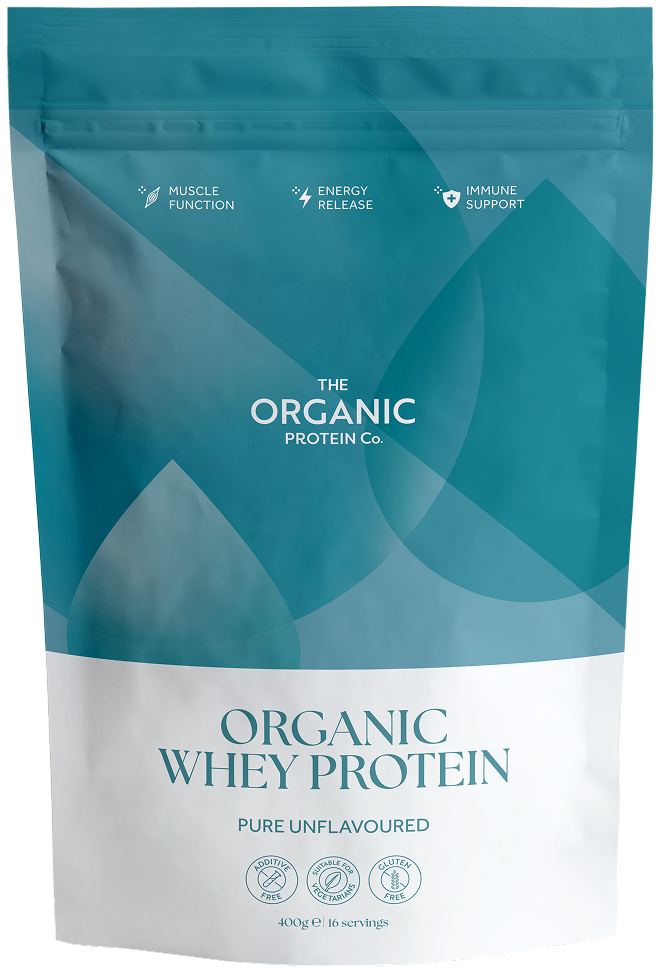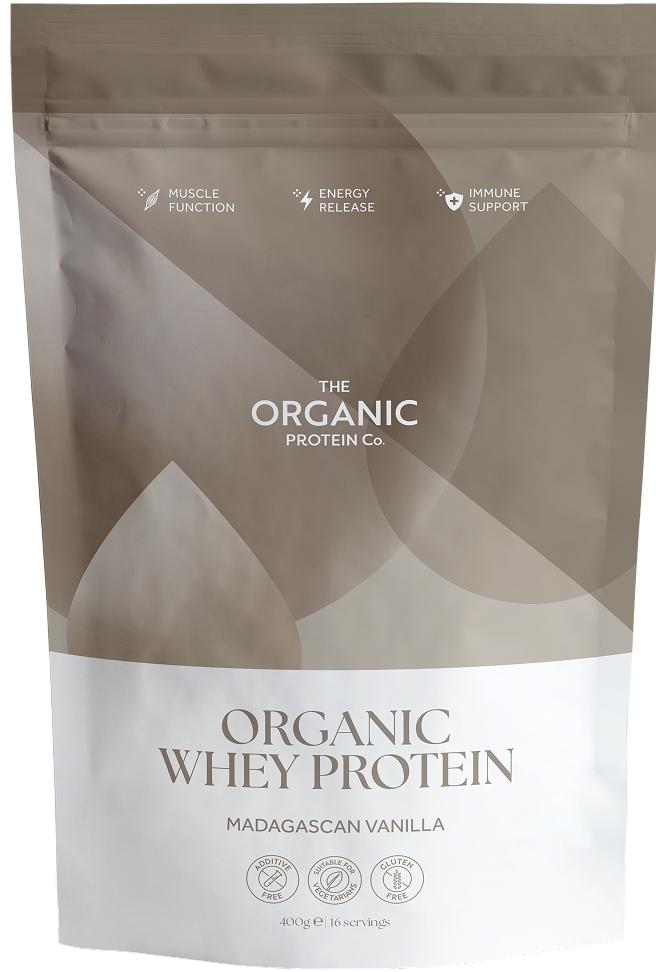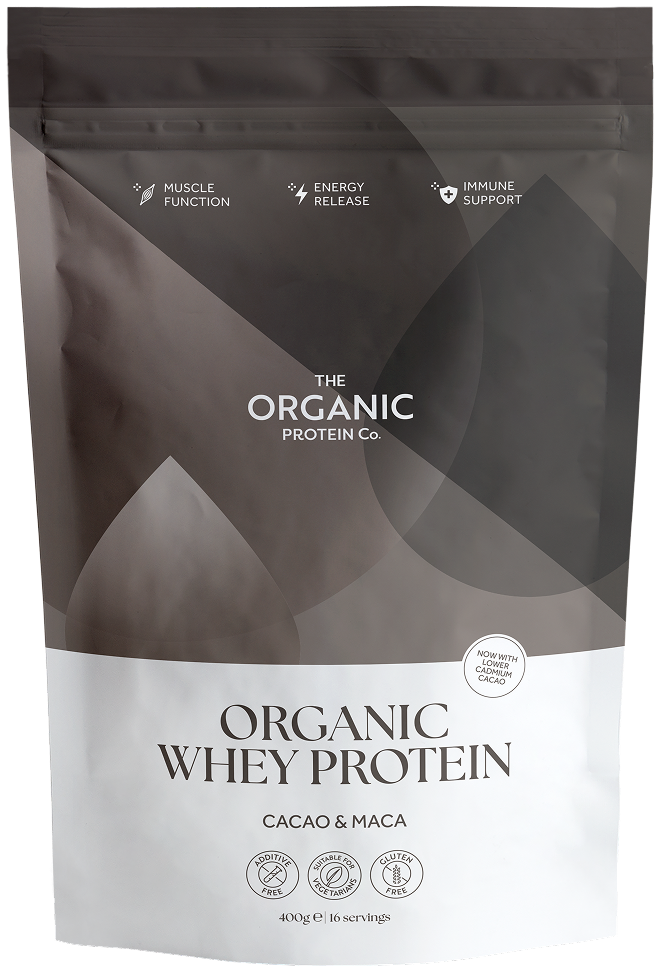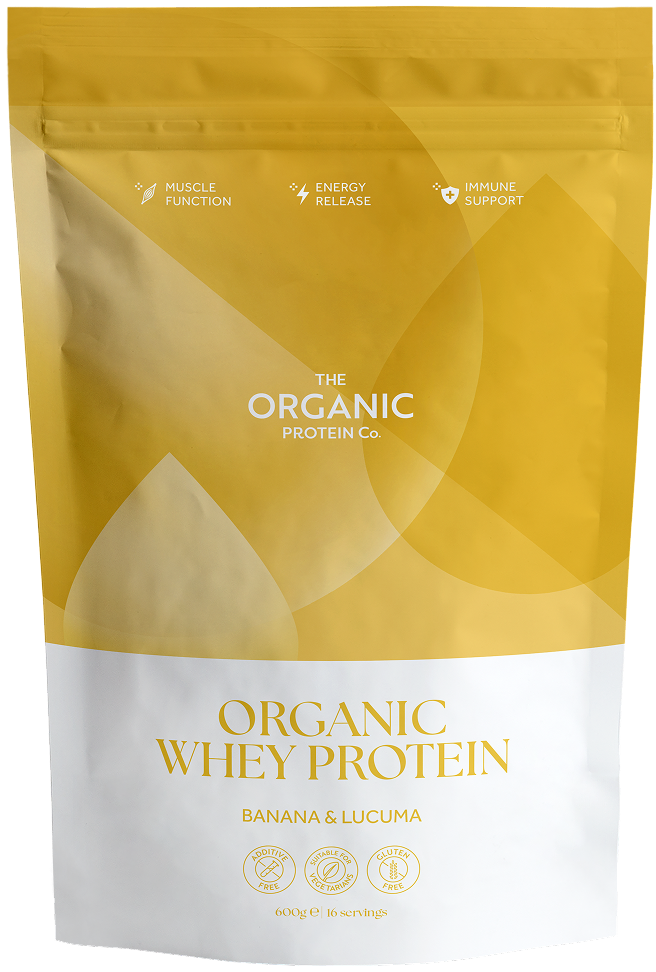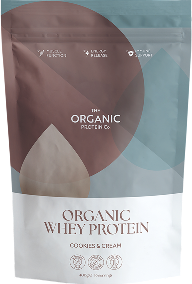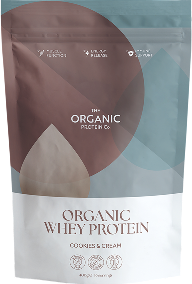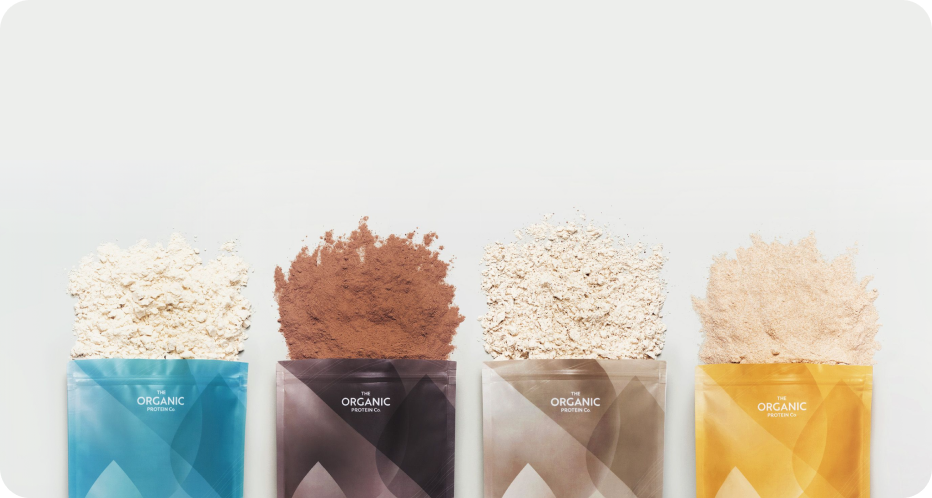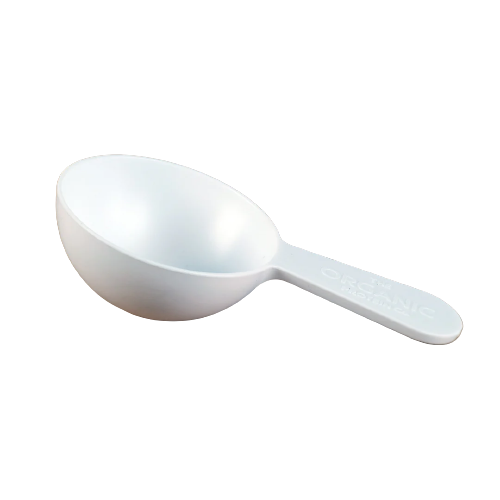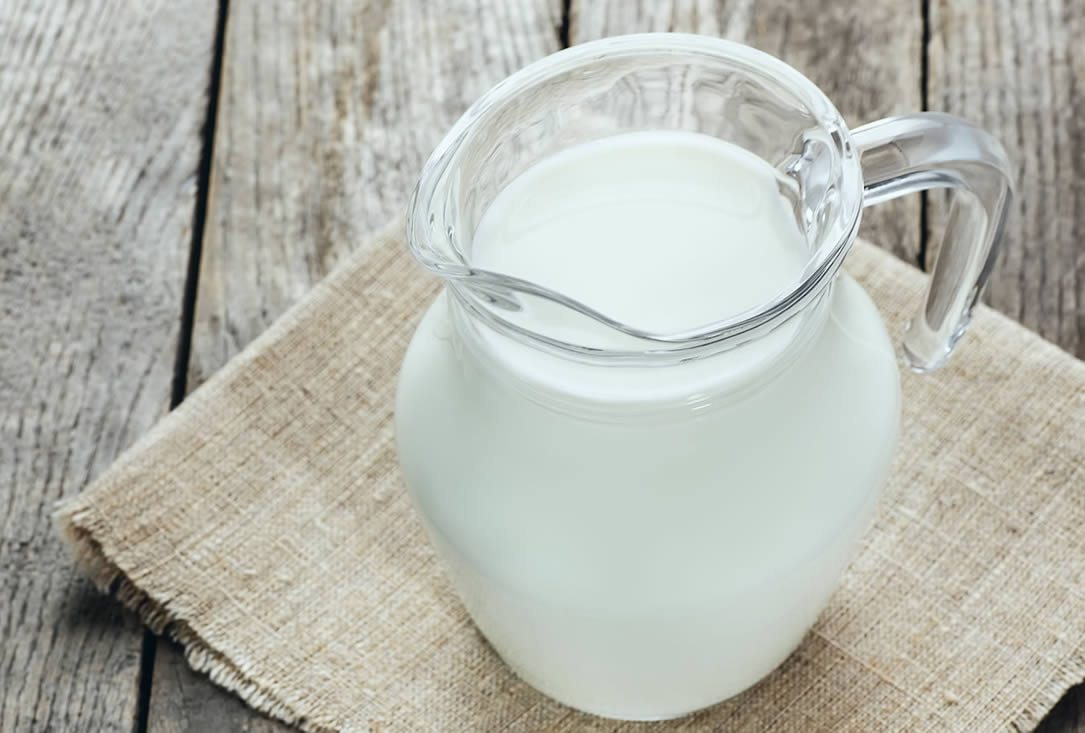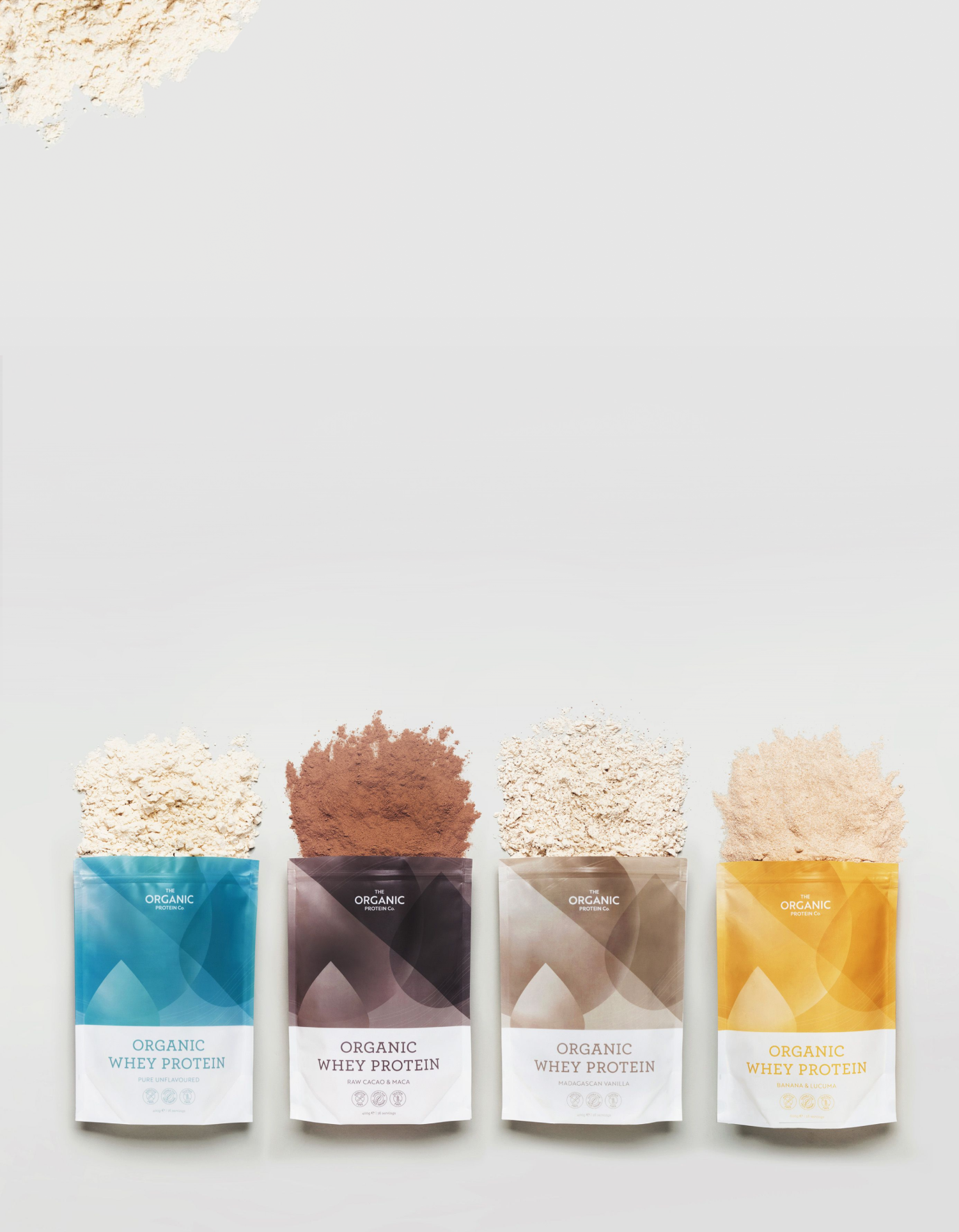When it comes to whey protein, there’s one question we’re asked more than almost any other: what’s the difference between isolate and concentrate?
It’s a great question–especially if you’re trying to decide which one is right for you. Let’s take a closer look at Whey Protein Isolate (WPI) and Whey Protein Concentrate (WPC) to help you make the best choice for your needs.
What Is the Difference Between Isolate and Concentrate?
The difference lies in how much protein, carbohydrate, and fat each contains–and that comes down to how they’re processed.
Whey Protein Concentrate (WPC) typically contains 70–80% protein, with the remaining 20–30% made up of naturally occurring fats, carbohydrates (including lactose), and other beneficial nutrients.
Whey Protein Isolate (WPI), on the other hand, is filtered further to remove most of the fat and lactose, resulting in a protein content of 90% or higher.
The difference lies in how much protein, carbohydrate, and fat each contains–and that comes down to how they’re processed.
Whey Protein Concentrate (WPC) typically contains 70–80% protein, with the remaining 20–30% made up of naturally occurring fats, carbohydrates (including lactose), and other beneficial nutrients.
Whey Protein Isolate (WPI), on the other hand, is filtered further to remove most of the fat and lactose, resulting in a protein content of 90% or higher.
Here’s a quick comparison:
Feature |
Whey Concentrate (WPC) |
Whey Isolate (WPI) |
Protein % |
70–80% |
90%+ |
Lactose content |
Higher |
Lower |
Fat content |
Slightly higher |
Very low |
Nutritional profile |
More natural fats, immune-boosting components |
More refined |
Taste |
Creamier, more natural |
Lighter |
Digestibility |
May be harder for sensitive individuals |
Easier to digest |
Price |
Lower |
Higher |

Why We Offer Whey Protein Concentrate
We’ve chosen to offer WPC as our main product because it’s the least processed form of whey protein available. It retains all the naturally occurring nutrients found in organic milk, including beneficial fats, immune-supporting compounds, and natural enzymes.
For those who tolerate dairy well, whey concentrate is often the best all-around option–especially when it is cold-filtered, like ours.

When Might You Choose Whey Isolate Instead?
Whey isolate may be a better choice if:
You’re very sensitive to lactose (though many tolerate our cold-filtered concentrate well)
You’re following a strict low-fat or low-carb diet
You’re an athlete or bodybuilder trying to hit precise macronutrient targets
You want the highest protein-to-calorie ratio.
Although we currently offer only concentrate, our cold-filtration process removes a significant portion of the lactose and fat–making our whey gentler on the gut than many standard WPCs.

How to Choose: WPI vs WPC for Your Goals
Goal |
Best Option |
Muscle building |
Either WPI or WPC (as long as daily protein targets are met) |
Weight loss / calorie control |
WPI (slightly lower in fat/carbs) |
Digestive sensitivity |
WPI or cold-filtered WPC (like ours) |
Max nutrition from organic milk |
WPC |
Budget-friendly |
WPC |
Although it’s true that concentrate has a protein content of around 70–80%, while isolate is typically higher at around 90%, there hasn’t been any evidence to show this affects its impact on your muscles and overall health. (1), (2)

FAQs
Is whey isolate better than concentrate?
Not necessarily–just different. Isolate has more protein per gram, but concentrate retains more of the milk’s natural nutrition. Your goals and dietary needs should guide your choice.
Does isolate have lactose?
It typically contains very little lactose, but isn’t guaranteed lactose-free unless labeled as such. Our cold-filtered WPC also has low lactose and is tolerated well by man
Which is easier to digest?
Many people find whey isolate easier to digest due to its lower lactose content. That said, a cold-filtered WPC (like ours) is often just as gentle. (3)

